Review: LOHENGRIN at Royal Opera House
During the Medieval period, the Germanic speaking nations of Europe were a hotbed of invention for folkloric tales often involving heroes with supernatural powers, chivalry and tests of faith. Richard Wagner used material from one such epic 15th century poem Lorengel as the major source for the libretto when composing his 3-Act opera Lohengrin set originally in 10th century Antwerp.
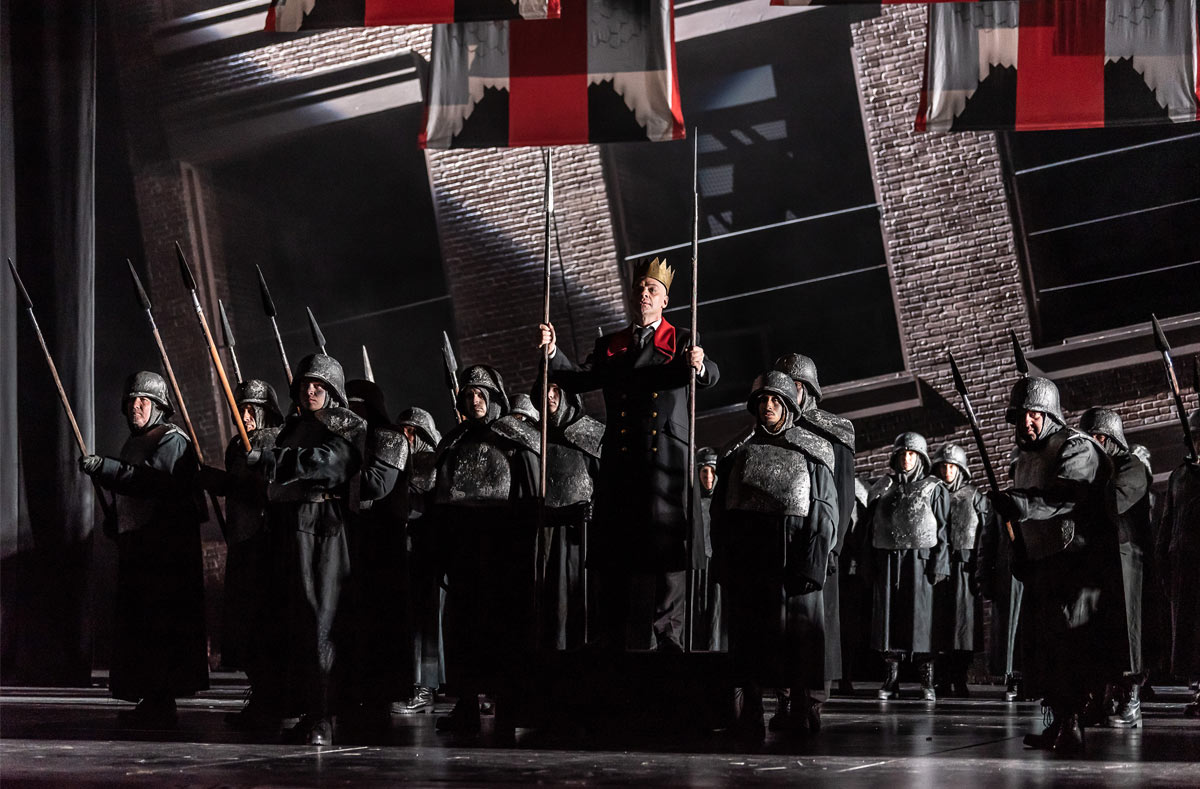 (King Heinrich) Gábor Bretz, ROH Lohengrin 2022, Ph.Clive Barda.
(King Heinrich) Gábor Bretz, ROH Lohengrin 2022, Ph.Clive Barda.
First performed at Weimar in late August of 1850, Lohengrin tells the story of Brabant’s court which finds itself in disarray at the death of their Duke and then the disappearance of his young heir Gottfried. The boy’s older sister Elsa is accused of abduction and murder by her brother’s appointed guardian the scheming Count Telramund and his pagan wife Ortrud. King Heinrich who is in Antwerp to recruit men to fight against the imminent Hungarian invasion, agrees to oversee the trial and stand in judgement. Elsa dreams of a knight in shining armour and invokes him when in need of a champion. He manifests on a boat drawn by swans and fights Telramund in her behalf to confirm her innocence of the charges. In defeat, The Count and his wife are banished and plot revenge whilst Elsa and her knight Lohengrin are embraced by the masses as he is declared the nation’s Protector causing him to ask for her hand in marriage so long as she agrees to his condition that she never asks his name or where he came from (pre-nuptial agreements were a little odd by todays standards)! Due to Ortrud’s subtle manipulation, Elsa succumbs to extreme curiosity and on her wedding night utters the questions she promised never to ask of her husband. Despite his repeated protestations that she should drop the subject and focus on their good fortune at finding each other, he is bombarded by demands to know his name and the secrets of his origin. Eventually Lohengrin is forced to reveal he is the son of Parsifal and that his home is within the Temple of the Holy Grail to where he must now set forth never to return. As he prays, his returning swan transforms back into Elsa’s brother Gottfried at which point the spell’s originator Ortrud dies and Elsa is overcome with grief at he husband’s forced departure due to her broken promise.
Richard Wagner’s high romantic, idealistic and moralising drama, offers warnings of misogyny and manipulation in the presence of power vacuums, juxtaposed with thinly-veiled lessons about the dire repercussions of nagging. One can’t help imagining Mr Wagner a very stern and unpleasant man who would undoubtedly have fallen foul of most modern society’s equality requirements.
In this revival of David Alden’s 2018 production, Elsa (Jennifer Davis) first emerges from a trap door having been incarcerated. She is bullied, ridiculed and stands trial before King Heinrich (Gábor Bretz), before being bullied some more by her supernatural saviour knight Lohengrin (Brandon Jovanovich). Little wonder that she seeks reassurances and makes a mess of their wedding night and future happiness. Count Telramund (Craig Colclough — who bravely stepped into the role on press night with oodles of energy but lacking the requisite pipes) is unduly influenced by his wife Ortrud (a marvellous turn from Anna Smirnova who was deliciously sexual and Macbethian during their second act plot-hatching scene).
Set designer Paul Steinberg has delivered a dark and angular trio of facades which are moved about the stage creating backdrops and alcoves for the multitudinous chorus, whilst costumes designer Gideon Davey has placed the production somewhere between the wars with most onstage individuals wrapped in a mid-thirties overcoat topped with a trilby. Lighting design by Adam Silverman was utilitarian and supplemented by some woefully old-hat video projections of fireworks and the landing swan by Tal Rosner.
Under Jakub Hruša’s baton, the orchestra had a tendency to flag during the first act but roused itself thereafter giving full heft to Wagner’s powerhouse score.
Latest News
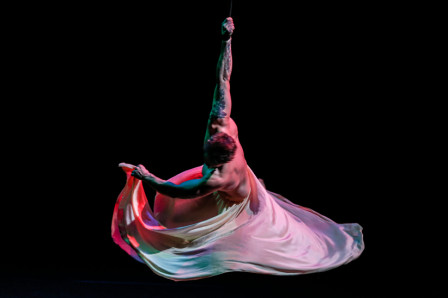
 Review: TUTU at Sadler’s Wells East
12 February 2026 at 08:52
Review: TUTU at Sadler’s Wells East
12 February 2026 at 08:52
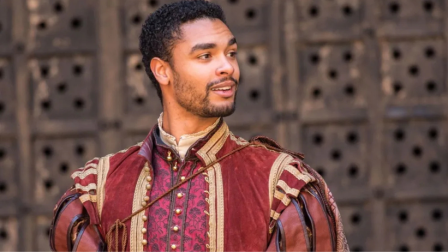
 Is The Great Gatsby, starring Regé-Jean Page, heading to the West End?
11 February 2026 at 15:40
Is The Great Gatsby, starring Regé-Jean Page, heading to the West End?
11 February 2026 at 15:40
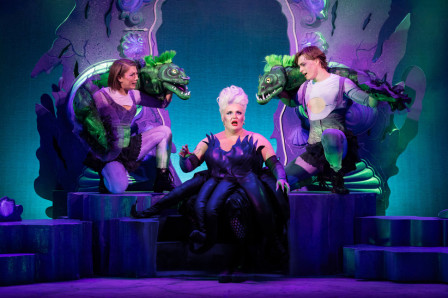
 Production photos of UNFORTUNATE: THE UNTOLD STORY OF THE SEA WITCH released
11 February 2026 at 15:14
Production photos of UNFORTUNATE: THE UNTOLD STORY OF THE SEA WITCH released
11 February 2026 at 15:14
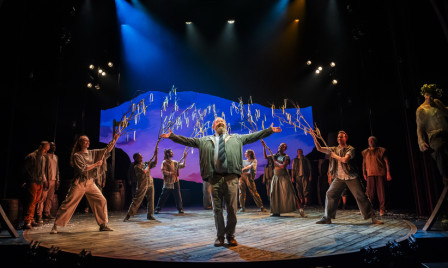
 Review Round-Up: THE UNLIKELY PILGRIMAGE OF HAROLD FRY at the Theatre Royal Haymarket
11 February 2026 at 14:19
Review Round-Up: THE UNLIKELY PILGRIMAGE OF HAROLD FRY at the Theatre Royal Haymarket
11 February 2026 at 14:19